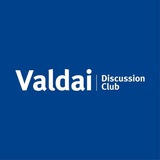🧩🌐 The global geopolitical configuration continues its transformation away from the embattled hegemony of the Western-centric US unipolar order towards a non-Western centric multipolar order.
As such, the level of competition and conflict is likely to increase as the US is a declining hegemon seeks to arrest the rise of competing are perceived to grow at their expense.
With its hard power resources in disarray and decline, new means are sought (in terms of mitigating various risks and costs) to manage and regulate the international order.
Hence there is a repositioning of operational focus activity from the physical realm to the information realm to engineer global perception and expectations in the cognitive realm to preserve the Western-centric “rules-based” order. The (mis)representation and communication of modern diplomacy is absolutely standing in contrast to each other.
Diplomacy is being used as a mechanism to try to shape and determine the outcome of this geopolitical contest for the future of how the world shall function, writes Valdai Club expert Gregory Simons.
#ModernDiplomacy #hegemony #WorldOrder
@valdaiclub
As such, the level of competition and conflict is likely to increase as the US is a declining hegemon seeks to arrest the rise of competing are perceived to grow at their expense.
With its hard power resources in disarray and decline, new means are sought (in terms of mitigating various risks and costs) to manage and regulate the international order.
Hence there is a repositioning of operational focus activity from the physical realm to the information realm to engineer global perception and expectations in the cognitive realm to preserve the Western-centric “rules-based” order. The (mis)representation and communication of modern diplomacy is absolutely standing in contrast to each other.
Diplomacy is being used as a mechanism to try to shape and determine the outcome of this geopolitical contest for the future of how the world shall function, writes Valdai Club expert Gregory Simons.
#ModernDiplomacy #hegemony #WorldOrder
@valdaiclub
Valdai Club
Clash of Diplomacies in the Transforming Global Order: Messianic Ideology Versus Pragmatic Realism
The global geopolitical configuration continues its transformation away from the embattled hegemony of the Western-centric US unipolar order towards a non-Western centric multipolar order. As such, the level of competition and conflict is likely to increase…
🗽🌏 When considering the main trends of the current international crisis, it becomes obvious that the initiative to the greatest extent belongs to the United States.
The goal of the United States is to prevent the world from becoming polycentric and consolidate its hegemony for the rest of the 21st century. To achieve this goal, Washington is trying to provoke Russia and China; to force them to take drastic steps that will alienate their allies. As a result of the violation of relations between Russia and China and their respective allies, the United States is counting on the release of significant material resources that can be used to strengthen its own influence.
The second task of the United States is to limit the economic growth of its own allies and force them to submit to the allied discipline. The US intends to eliminate impulses for strategic autonomy both within the European Union and among its partners and allies in Asia. Washington hopes that, as a result, it will strengthen its role as a key and indispensable participant in the multilateral military partnerships that US allies are part of.
Working separately with each country, the US seeks to involve its partners in East Asia in conflicts in Europe, and vice versa. This explains the exotic-looking negotiations on the supply of South Korean tanks to Poland. Although there is no direct connection between the Ukrainian crisis and the situation around Taiwan, the US is making every effort to create it artificially.
The search for cracks in the anti-Russian coalition of Western states is futile. Washington securely holds the initiative and literally twists the arms of states that risk raising their voice in favour of peace rather than war, writes Valdai Club Programme Director Andrey Sushentsov.
https://valdaiclub.com/a/highlights/motives-of-the-anti-russian-coalition/
#ModernDiplomacy #UkraineCrisis #geopolitics #hegemony #NewWorldOrder
@valdai_club
The goal of the United States is to prevent the world from becoming polycentric and consolidate its hegemony for the rest of the 21st century. To achieve this goal, Washington is trying to provoke Russia and China; to force them to take drastic steps that will alienate their allies. As a result of the violation of relations between Russia and China and their respective allies, the United States is counting on the release of significant material resources that can be used to strengthen its own influence.
The second task of the United States is to limit the economic growth of its own allies and force them to submit to the allied discipline. The US intends to eliminate impulses for strategic autonomy both within the European Union and among its partners and allies in Asia. Washington hopes that, as a result, it will strengthen its role as a key and indispensable participant in the multilateral military partnerships that US allies are part of.
Working separately with each country, the US seeks to involve its partners in East Asia in conflicts in Europe, and vice versa. This explains the exotic-looking negotiations on the supply of South Korean tanks to Poland. Although there is no direct connection between the Ukrainian crisis and the situation around Taiwan, the US is making every effort to create it artificially.
The search for cracks in the anti-Russian coalition of Western states is futile. Washington securely holds the initiative and literally twists the arms of states that risk raising their voice in favour of peace rather than war, writes Valdai Club Programme Director Andrey Sushentsov.
https://valdaiclub.com/a/highlights/motives-of-the-anti-russian-coalition/
#ModernDiplomacy #UkraineCrisis #geopolitics #hegemony #NewWorldOrder
@valdai_club
Valdai Club
Motives of the Anti-Russian Coalition: Are There Cracks in the Monolith?
The search for cracks in the anti-Russian coalition of Western states is futile. Washington securely holds the initiative and literally twists the arms of states that risk raising their voice in favour of peace rather than war, writes Valdai Club Programme…
